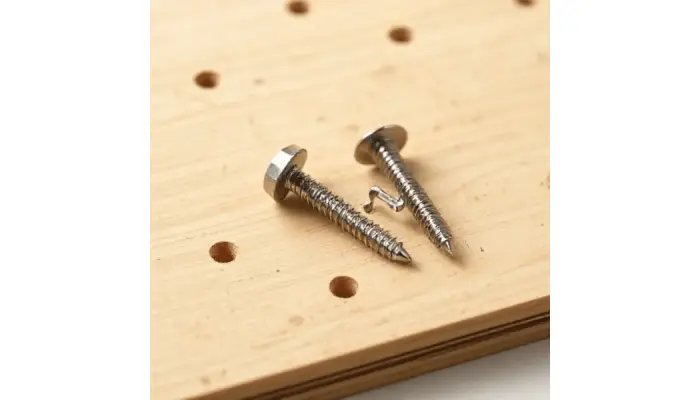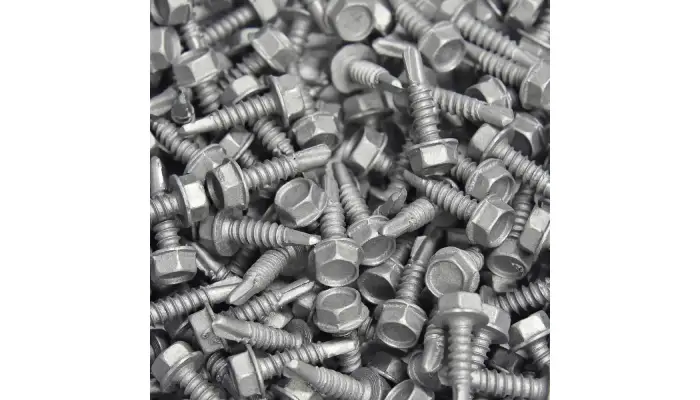The screw manufacturing industry plays a pivotal role in modern construction and engineering. From tiny screws used in electronics to robust bolts for heavy machinery, these small fasteners are essential components that hold our world together. As demand continues to grow, the pressure mounts on screw manufacturing companies to deliver not just quantity but quality.
Quality is not merely an afterthought—it’s the backbone of every successful screw production operation. Poor-quality products can lead to safety hazards, increased costs from returns or recalls, and damage to a company’s reputation. So how do manufacturers ensure their screws meet the highest standards?
This exploration delves into common challenges within the industry while offering actionable strategies for enhancing quality at every stage of production. Whether you’re part of a well-established manufacturer or entering this competitive field, understanding these insights can significantly impact your operations and success in the market. Let’s dive deeper into how you can elevate your screw manufacturing company today.
The Importance of Quality in Screw Production
Quality in screw production is crucial for several reasons. First, it directly impacts the performance and longevity of the screws themselves. High-quality screws are less likely to strip or break under pressure, ensuring reliability in various applications.
Additionally, quality assurance builds trust with customers. When clients know they can rely on a manufacturer for consistent quality, they’re more likely to return for future orders. This loyalty can drive long-term success.
Moreover, maintaining high standards minimizes waste and reduces rework costs. Flawed products lead to delays and additional expenses that can strain resources.
Strict adherence to quality enhances brand reputation within the industry. A strong reputation attracts new business opportunities and fosters partnerships that are essential for growth in today’s competitive market. Quality isn’t just an aspect; it’s foundational for any screw manufacturing company in India aiming for excellence.

Strategies for Improving Quality in Screw Production
Improving quality in screw production requires a multifaceted approach. First, companies should adopt lean manufacturing principles. This minimizes waste and enhances efficiency throughout the production process.
Next, integrating advanced technology can significantly elevate quality standards. Automation and precision machinery ensure consistent output while reducing human errors.
Quality control measures play a crucial role too. Implementing regular inspections at various stages of production helps catch defects early on.
Employee training is vital for maintaining high standards as well. Skilled workers are more likely to produce top-quality screws when they understand best practices and the importance of their roles.
Collaborating closely with suppliers guarantees that raw materials meet stringent specifications. High-quality inputs lead directly to superior finished products, reinforcing the company’s reputation in the market.
Utilizing Advanced Technology and Machinery
Embracing advanced technology and machinery is a game changer for screw manufacturing companies. Automation streamlines production processes, reducing human error and increasing efficiency.
Robotic systems can handle repetitive tasks with precision. This not only accelerates output but also ensures consistency in product quality. Advanced CNC machines allow manufacturers to create intricate designs that meet specific client needs while maintaining tight tolerances.
Digital monitoring tools provide real-time data on machine performance. Companies can identify issues before they escalate, minimizing downtime and waste. Incorporating AI-driven analytics further enhances decision-making by predicting maintenance needs based on usage patterns.
Additionally, 3D printing technology opens new avenues for prototyping complex screws quickly. It enables rapid iterations without the high costs associated with traditional methods. By investing in these technologies, screw manufacturing companies position themselves at the forefront of innovation in their industry.
Implementing Quality Control Measures
Implementing quality control measures is vital for screw manufacturing companies. A robust system ensures that products meet industry standards and customer expectations.
Start by establishing clear benchmarks for quality at every production stage. This could involve setting tolerances for dimensions, surface finishes, or material properties. Engage your team in regular inspections to identify any deviations early on.
Incorporate statistical process control (SPC) methods to monitor processes in real time. These data-driven insights help pinpoint issues before they escalate into larger problems.
Utilize tools like Six Sigma or Lean methodologies to streamline operations while enhancing quality. Training employees on these principles fosters a culture of continuous improvement across the organization.
Additionally, feedback loops from customers can provide valuable insights into product performance and areas needing enhancement. Listening to clients not only improves your offerings but also strengthens relationships with them over time.
Investing in Employee Training and Development
Investing in employee training and development is essential for any screw manufacturing company aiming to enhance quality. Skilled workers are the backbone of production, ensuring precision and consistency.
Training programs can cover various aspects, from machinery operation to quality control procedures. This knowledge empowers employees to identify issues before they escalate.
Moreover, a culture of continuous learning fosters innovation. Employees feel valued when companies invest in their growth. This not only boosts morale but also enhances productivity across the board.
Cross-training employees can provide flexibility on the shop floor. It allows team members to understand multiple roles, increasing efficiency during peak periods or staff shortages.
Utilizing modern technologies in training sessions makes learning more engaging. Virtual reality simulations or interactive workshops can bring concepts to life, making it easier for teams to grasp complex processes effectively.
Collaborating with Suppliers for High-quality Materials
Collaboration with suppliers is a crucial step for any screw manufacturing company seeking to enhance quality. Building strong relationships can lead to better understanding and communication regarding material specifications.
Choosing the right supplier means more than just price. It involves assessing their production processes, quality certifications, and ability to deliver consistently high-grade materials. Working closely with suppliers allows manufacturers to provide feedback on material performance, fostering continuous improvement.
Regular meetings and open dialogues help address any issues promptly. This proactive approach ensures that both parties are aligned in their goals of producing top-notch screws.
Additionally, collaborating with suppliers opens doors for innovative materials that could elevate product performance or reduce costs without compromising quality. By investing time in these partnerships, screw manufacturers set themselves up for long-term success in an increasingly competitive market.
Case Studies of Successful Quality Improvement in Screw Manufacturing Companies
One notable case study is that of a leading screw manufacturing company that revamped its production processes. They introduced lean manufacturing principles, which significantly reduced waste and improved efficiency. By focusing on continuous improvement, they were able to enhance product quality.
Another example involves a manufacturer that adopted advanced CNC machining technology. This investment allowed for greater precision in screw dimensions, resulting in fewer defects and reworks. Their commitment to high standards quickly earned them industry accolades.
A small family-owned business also experienced remarkable transformation after implementing rigorous quality control measures. Regular audits and feedback loops helped identify areas needing attention, ultimately elevating their product reliability.
These examples demonstrate how dedicated efforts towards quality can yield impressive results across various scales within the screw manufacturing sector. Each company’s journey showcases unique strategies tailored to their specific challenges while maintaining an unwavering focus on excellence.
Conclusion
Improving quality in screw manufacturing can transform a company’s reputation and profitability. When a screw manufacturing company prioritizes quality, it not only meets customer expectations but also builds trust. High-quality products lead to fewer returns and reworks, which saves money in the long run.
Enhanced quality control measures help ensure that every product is reliable and durable. This reliability fosters stronger relationships with clients who depend on these components for their own production processes. As clients notice consistent quality, they become repeat customers, driving sales growth.
Investing in advanced technology streamlines operations while reducing errors. Automation increases precision, making it easier to maintain high standards throughout the production process. Employee training further reinforces this commitment to excellence by equipping staff with skills needed for today’s demanding market.
Collaboration with trusted suppliers ensures access to superior materials that enhance overall product integrity. Each element—from raw material sourcing to final inspection—plays a crucial role in delivering excellence.
Companies that embrace these strategies position themselves as leaders within the industry. The positive ripple effects of improved quality extend beyond individual businesses; they elevate entire sectors through innovation and reliability. Thus, focusing on producing top-notch screws pays dividends far beyond immediate financial gains.

Mary Burns is a dedicated writer focusing on health and fitness topics. With a passion for promoting wellness and vitality, Mary shares her knowledge and expertise through engaging and informative blog posts.




